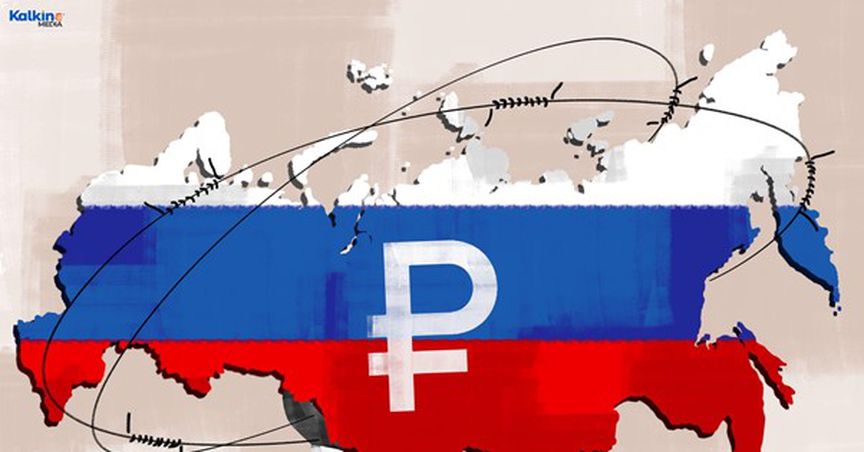Highlights:
- Despite geo-political turmoil and heavy sanctions, Russia picked up its exports in April.
- Most of Western European and other countries like India and Turkey are importing oil from Russia.
- Several economists suggest that Russian economy is expected to contract in the long run.
It's now been more than two months since Russia invaded Ukraine. As matters escalated, the US and other countries collectively decided to put heavy sanctions against Russia to force Putin to stop the invasion. It was expected that following the sanctions, Russia would soon experience an economic fallout. However, the doors seemed to have opened to a different roadway. Russia has instead picked up its exports in April.
Let’s see how the Russian economy is holding on despite heavy sanctions.
GOOD READ: Oil prices entangled between China’s lockdown & EU’s Russian oil ban
What is happening right now?
Russia is the third-largest producer of crude oil. Thus, banning Russian exports of oil and gas seemed unrealistic to many. Besides, most of the Western European and other countries like India and Turkey are importing oil from Russia.
During the initial days of the invasion, the Russian economy did face a grim reaction from most of the world. Tons of companies suspended their businesses in the country; sanctions were put on Russian banks. Following these, the share market of Russia fell immensely.
However, countries do need the discounted oil that Russia is exporting. Some experts suggest that it's a funny game on right now- because countries importing oil from Russia might also be providing military support to Ukraine. Nevertheless, on top of everything, the revenue generated through exports rose in April compared to March.

Source: © Designer491 | Megapixl.com
Additionally, it was earlier expected that because of the sanctions, financial institutions of the country would face liquidity issues. However, so far, the sector has avoided severe liquidity problems. Putin’s step amid the war seems to be saving Russia from a significant downfall. For instance, by exporting crude oil at heavy discounts, Putin might be increasing the country’s aggregate oil export revenue more than the previous years’ exports in the upcoming months.
Coming to inflation, prices are skyrocketing in the country at a mourning rate. However, inflation may not increase by 25% by the end of 2022, according to various reports.
ALSO READ: Crude oil inches higher as EU considers ban on Russian oil imports
Title: What are some challenges BRICS countries face amid the Russia-Ukraine war?
What happens in the long run?
Experts suggest that the Russian economy may stay intact in the current scenario. However, if the invasion continues and the sanctions are put in place rightly, the Russian economy is expected to contract.
Credit availability to businesses and individuals across Russia would be limited. Thus, several economists suggest that the Russian economy is expected to contract by one-fifth in the upcoming years.
MUST-READ: Can the Russia-Ukraine war derail Australia's economic recovery?
Down the line, the Russian economy may be hustling tough to sustain through the heavy sanctions put by the US and other countries. However, since not all banks have been put under the red radar and gas and oil are being exported, the Russian economy is holding on tight.






